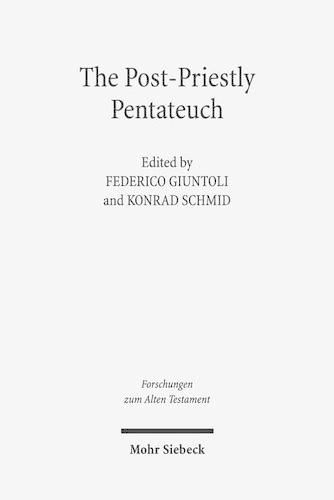Readings Newsletter
Become a Readings Member to make your shopping experience even easier.
Sign in or sign up for free!
You’re not far away from qualifying for FREE standard shipping within Australia
You’ve qualified for FREE standard shipping within Australia
The cart is loading…






Today agreement regarding the formation of the Pentateuch is no longer as widespread as it was when the documentary hypothesis was first proposed. Numerous scholars find that more recent periods of Israelite history - the exilic and post-exilic periods - are more likely to have been behind important sections of the Pentateuch. This has resulted in a major shift in scholarship: no longer is the remote past of Israelite history the only era, or even the primary era, during which the Pentateuch came into formation. Rather, the development of the Pentateuch continued down into the Persian and Hellenistic periods. During these centuries, the post-exilic community brought together the texts of their own cultural heritage and blended these ancient stories with ex novo additions that reflected their current historical situation. The result was the Pentateuch as we know it today. This volume focuses on these final redactions included in the biblical text after the Priestly materials. The purpose of these final additions was to complete that which was deemed necessary to recount, as well as to update, reorient, and, sometimes, to correct older materials containing ideas that were no longer compatible with the post-exilic time of the editors.
$9.00 standard shipping within Australia
FREE standard shipping within Australia for orders over $100.00
Express & International shipping calculated at checkout
Today agreement regarding the formation of the Pentateuch is no longer as widespread as it was when the documentary hypothesis was first proposed. Numerous scholars find that more recent periods of Israelite history - the exilic and post-exilic periods - are more likely to have been behind important sections of the Pentateuch. This has resulted in a major shift in scholarship: no longer is the remote past of Israelite history the only era, or even the primary era, during which the Pentateuch came into formation. Rather, the development of the Pentateuch continued down into the Persian and Hellenistic periods. During these centuries, the post-exilic community brought together the texts of their own cultural heritage and blended these ancient stories with ex novo additions that reflected their current historical situation. The result was the Pentateuch as we know it today. This volume focuses on these final redactions included in the biblical text after the Priestly materials. The purpose of these final additions was to complete that which was deemed necessary to recount, as well as to update, reorient, and, sometimes, to correct older materials containing ideas that were no longer compatible with the post-exilic time of the editors.